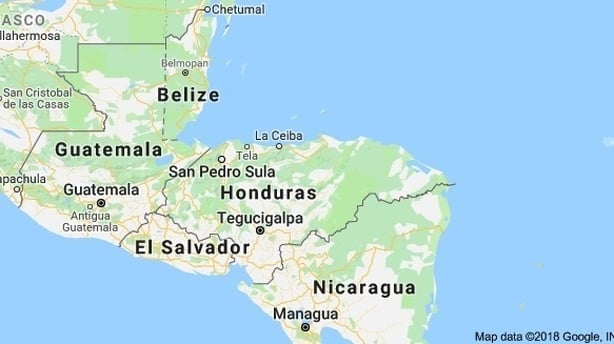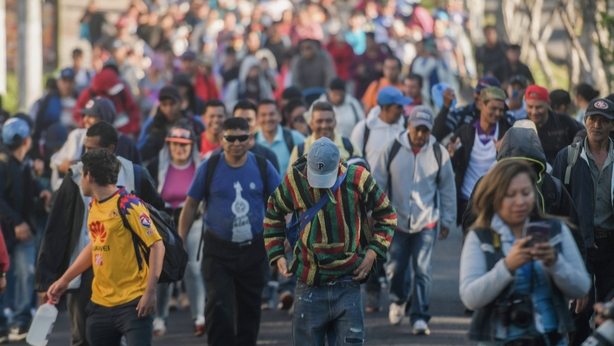María Felícita Lopez left behind everyone she knew to escape an attempt to force her into marriage. She escaped her home and fled to a city where she knew nobody. Alone and frightened, she had to learn how to survive on her own. She was just 11 years old.
María had already experienced plenty of trauma in her young life, having suffered sexual violence and regular bullying by a close family member.

She ran away to La Paz, a city in the centre of Honduras, where she found work as a maid. Roughly one in every nine children in Honduras engages in child labour. Children forced to work are at high risk of exploitation and often fall victim to gangs and human traffickers.
Although considered a middle-income country, more than two-thirds of the population of Honduras live below the poverty line, with 40 per cent living in absolute poverty.
A coup d’état in 2009 led to a political crisis which has weakened democracy and respect for human rights. Severe restrictions have been put in place on citizen participation, social protest and freedom of expression in recent years.
Gender inequality and violence against women are also serious problems. Only 47 per cent of women participate in the labour market compared with 84 per cent of men. Women earn only 63 per cent of the salary earned by men doing the same job.
Indigenous people in Honduras face particular challenges, particularly around their land rights. Many of Honduras’ remaining untapped natural resources are located on lands inhabited by indigenous people. Standing up to protect these resources can often cost indigenous people their lives.

Maria is from the Lenca community. The indigenous people known as the Lenca live between Honduras and El Salvador, and access to their resources are threatened by land-grabbing and hydroelectric projects.
There are approximately 300,000 members of the Lenca community in western Honduras. Like many indigenous groups, they face enormously high poverty rates. It is estimated that 88 per cent of Lenca children live in extreme poverty.
María wanted to help her community but her childhood experiences had left her very low on confidence. Thankfully, María enrolled in evening school and became involved in the Lenca Indigenous Independent Movement of La Paz (MILPAH), an organisation that helps to protect the rights of indigenous communities in Honduras.
Maria struggled to speak in public and was too nervous to make her feelings known. That is when she underwent training to teach her of her rights and how to stand up for them.
"There is a lot of difference in my life after receiving training," she says.
"Before I was shy. I could not talk. I was scared to go out. Now I feel an empowered woman. I speak when I feel I ought to; I take the spaces that I believe are ours, of the women. I say what is fine and what is not. I don’t remain silent."
Given her own background, María particularly wanted to help women. Violence against women in Honduras is widespread. In 2016, 463 women in Honduras were murdered – roughly one every 19 hours.
Young women are particularly vulnerable. In 2017 Honduras raised the legal age of marriage to 18 and removed all exceptions for child marriage. Prior to this, it is estimated that one-third of Honduran girls were married before the age of 18.
María’s work with MILPAH sees her advise women who experience violence. It has not always been easy. She has been threatened by the victims’ families.
Despite the risks, she believes in the importance of the work she does as she wants to prevent women from experiencing violence. Within the organisation, she fights for the right of women to participate, to become empowered as leaders, and to contribute to the eradication of violence.
"I would like that more women receive these trainings," she says. "That they were invited to a workshop, that they don’t stay at home, that they participate. If they don’t, they will miss out on many things. I wish that women were united. We cannot accept the violence against us; our daughters cannot go through the same situation that we have been through."
The views expressed here are those of the author and do not represent or reflect the views of RTÉ.



